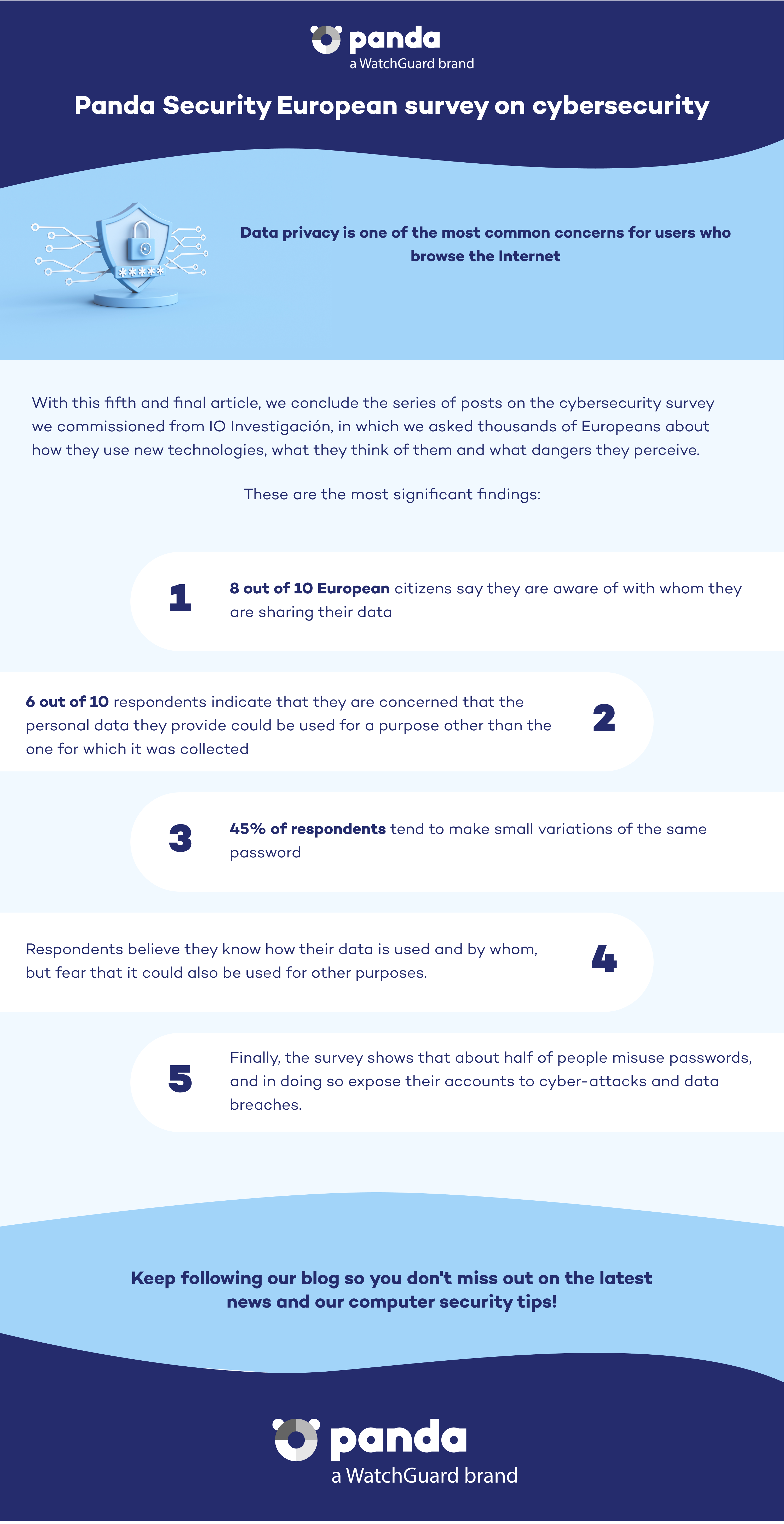Data privacy is one of the most common concerns for users who browse the Internet. More than 6 out of 10 Europeans from our survey admitted to be being very worried that the personal data they submit when registering on a social network, app or website will be used for a purpose other than the one for which it was collected.
Some aspects related to data privacy protection are the type of passwords used on the platforms and the way these passwords are managed. In this article we will analyse the European-wide data from MacLucan’s cybersecurity survey with a focus on the results related to personal data privacy.
Unlimited sharing
When you navigate the Internet, carrying out certain actions such as subscribing to a newsletter or making a purchase may involve a request for personal data. And, as with all things in life, it is very important to be careful as this data is yours and if it falls into the wrong hands, there can be harmful repercussions.
It is worth remembering that when sharing personal data, you should be aware of who you are providing it to and the use they can make of that data. You will usually find this information in the data privacy policy on the website in question.
Based on the survey results, over 8 out of 10 European citizens say they are aware of with whom they share the data they provide (81.37%) and more than 6 out of 10 respondents indicate that they are concerned that the personal data they provide could be used for a purpose other than the one for which it was collected (62.86%).
Read also: 15 Tips to Protect Personal Information Online for 2023
The value of passwords
Another key piece in the puzzle of protecting personal information, however, is passwords.
Passwords are the first line of defence against cybercriminals, and it is therefore essential that they are secure. One tip to help protect and strengthen the security of your data is to use different passwords. Regarding passwords on different websites or platforms, 45% of respondents admit to making only small variations of the same password, while 37.84% use completely different passwords across platforms and apps, while 16.95% say they always use the same password for everything.
Another recommendation regarding your passwords is the degree of complexity. The longer and more complex they are, the more secure they will be. As for the type of passwords they tend to choose on different websites or platforms, 48.75% of Europeans say they choose very complex passwords that are impossible to remember, compared to 44.79% who prefer passwords that are easy to remember.
Read also: How to Make Strong Passwords: Best Internet Safety Practices
Do you know how to manage passwords safely?
A password manager is a must-have software programme nowadays. This tool is designed to encrypt your passwords and store them securely, offering an easy way to manage and access them quickly and efficiently.
Panda Dome’s password manager, for example, will manage all your passwords under a single master key.
It is interesting to see how Europeans manage passwords. 56% of respondents say they accept the option of storing passwords on their devices. While 48.80% say they write down passwords on paper, Excel, etc.
Tips and best practices
Here are the best practices for secure passwords:
- Use a unique and different password for each account.
- Update passwords when there is suspicion that there has been a security incident.
- Do not share passwords through unsecured channels.
- Do not store passwords in your browser.
- Use a password manager.








